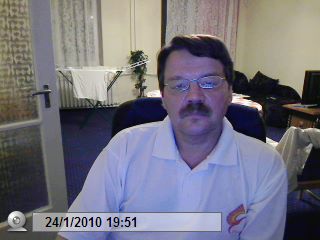Doc Watson--American Folk Music Legend

"Discovered" in the heat of the sixties folk revival, Doc Watson is a legendary performer who blends his traditional Appalachian folk music roots with blues, country, gospel, and bluegrass to create his unique style and expansive repertoire. Blind from infancy, Doc has spent his lifetime making music and is considered by fans everywhere one of the world's most accomplished flat-pickers.
Doc was born Arthel L. Watson in Deep Gap , NC (Watauga County) on March 23 , 1923 into a family with a rich musical tradition. His mother, Annie Watson, sung many traditional secular as well as religious songs, and his father, General Watson, played the banjo. Doc's early instrumental experience was with harmonica and a homemade banjo, but at age thirteen he taught himself the chords to "When the Roses Bloom in Dixieland" on a borrowed guitar. As the story goes, Doc's father was so pleased that Doc had been able to teach himself these chords in one day, that he helped Doc buy his own guitar the very next Saturday.
Armed with his new $12 Stella guitar, Doc began playing both traditional family tunes as well as new material he learned from records and the radio. For a time, Doc played mostly with musical neighbors and family, among them fiddler Gaither Carlton , who became his father-in-law when Doc married Rosa Lee Carlton in 1947. Gaither Carlton was a fine old time fiddler who shared with Doc many traditional tunes of the mountain region where he was raised.
Although Doc continued playing and singing with greater and greater skill, it wasn't until 1953 at age thirty that he met Jack Williams, a local swing band piano player, and began to play gigs for money. Doc played rocking western swing/rockabilly with Williams' band for seven years, during which time he switched to electric guitar. Because the band didn't have a fiddle player, Doc, at Williams' request, picked out tunes for square dance numbers on his electric guitar, thus developing what would become his trademark acoustic picking style.
During the years that he toured Tennessee and North Carolina with Williams' band, however, Doc continued to play traditional music with his family and with his banjo playing neighbor, Clarence "Tom" Ashley. In 1960, spurred by the growing folk revival, Ralph Rinzler and Eugene Earle came south to record Tom Ashley and heard Doc Watson's banjo picking in the process. Rinzler and Earle quickly decided to record the two together, and these sessions resulted in Old-Time Music at Clarence Ashley's.

Nincsenek megjegyzések:
Megjegyzés küldése